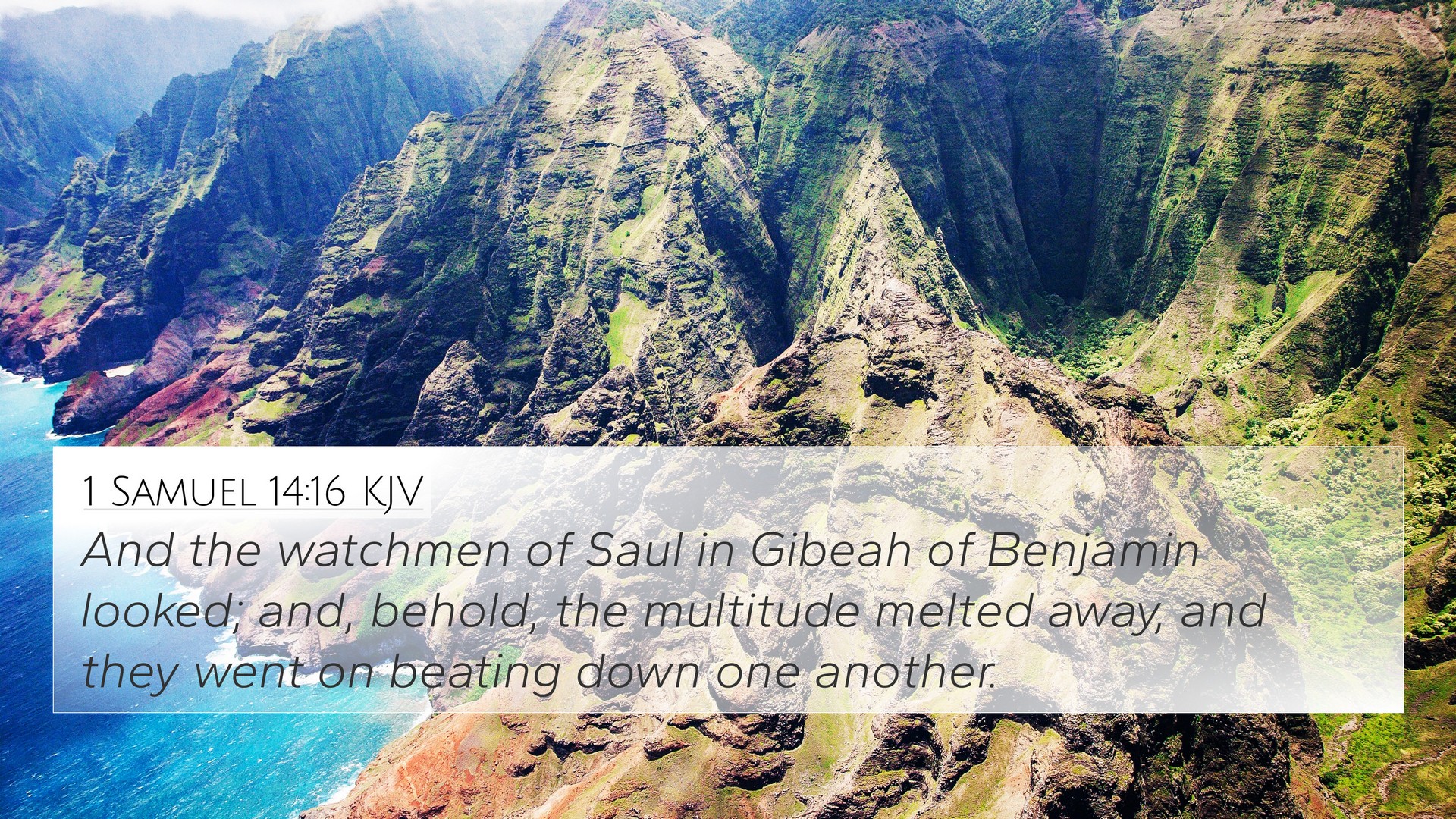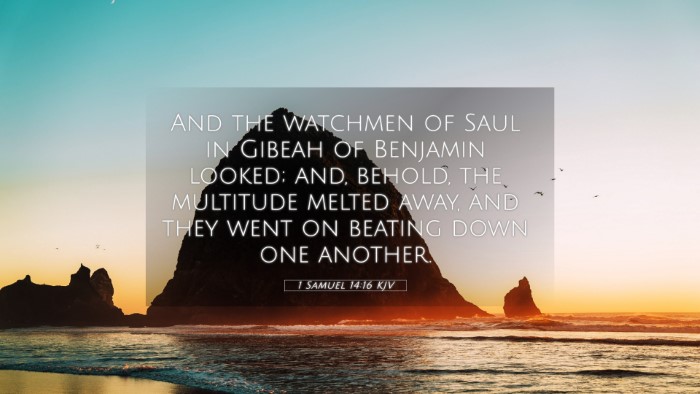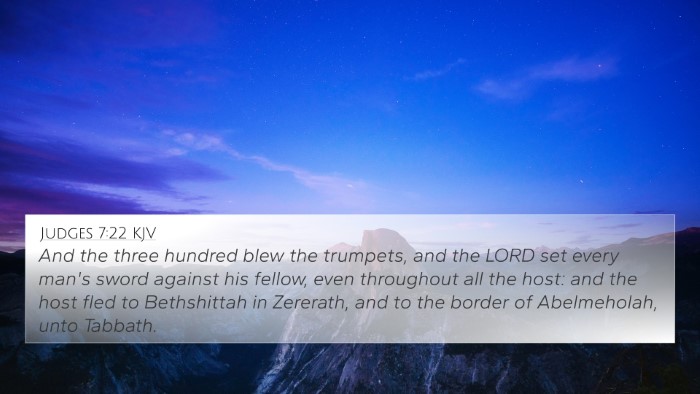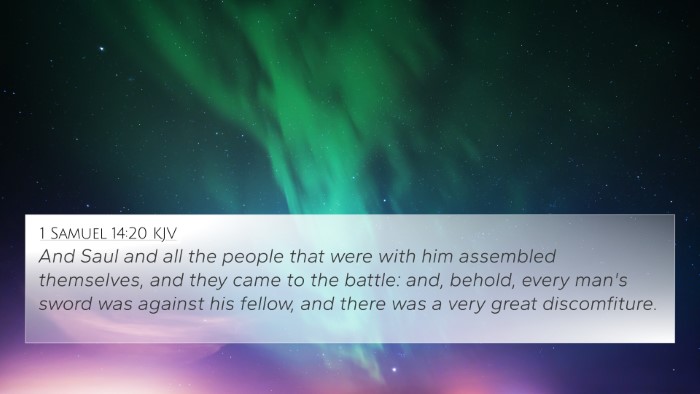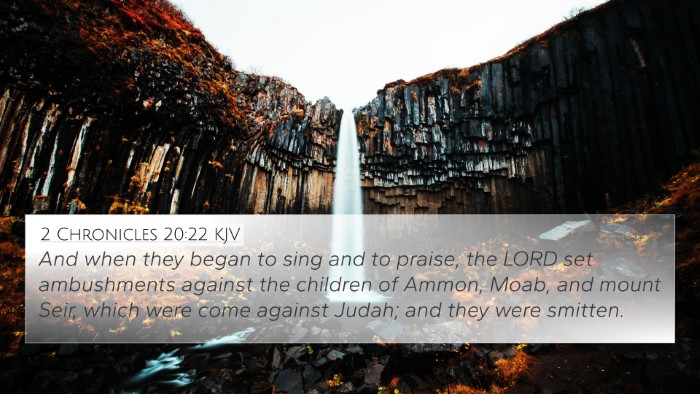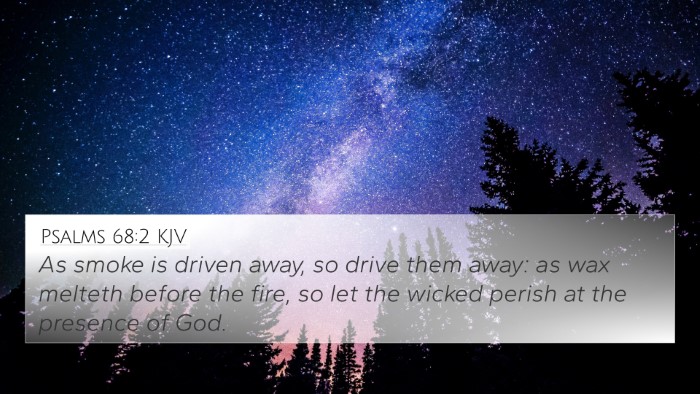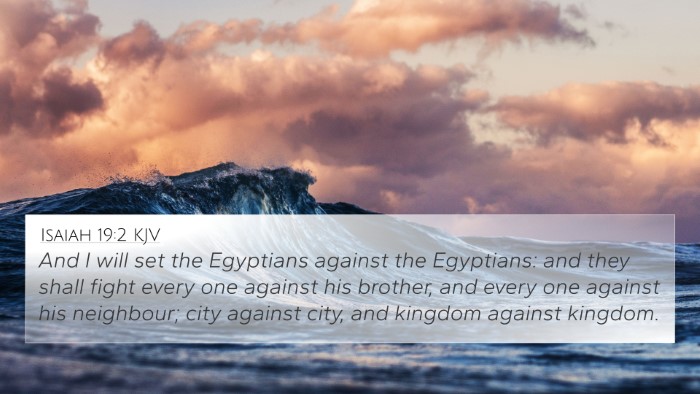Understanding 1 Samuel 14:16
Verse: "And the watchmen of Saul in Gibeah of Benjamin looked; and, behold, the multitude melted away, and they went on beating down one another." (1 Samuel 14:16)
Overview: This verse takes place during a pivotal moment in the battle between the Israelites and the Philistines. Saul's watchmen observe a chaotic scene as the enemy forces become disorganized and engaged in conflict among themselves. The verse highlights the providential intervention of God, demonstrating how He can turn the tide of battle in favor of His people.
Insights from Public Domain Commentaries
Matthew Henry's Commentary
Henry notes that the watchmen's observation signifies a moment of divine intervention. The Philistines, in confusion and terror, turned on one another as a result of God orchestrating their demise. Henry emphasizes the importance of recognizing God's hand in the affairs of men, especially in warfare, affirming that victories often stem from the Lord’s guidance rather than pure human effort.
Albert Barnes' Notes on the Bible
Barnes elaborates on the significance of the phrase "the multitude melted away." He indicates that this reflects not only physical fear but a psychological collapse among the Philistines. The internal strife leading to their defeat serves as an example of how God can cause confusion among enemies, supporting the notion that the battle belongs to the Lord (1 Samuel 17:47). Barnes draws parallels to other biblical instances where God created fear among adversaries, further advising believers to trust in divine protection and intervention.
Adam Clarke's Commentary
Clarke provides a detailed analysis of the circumstances leading to the watchmen's observation. He suggests that Saul's earlier decisions and their repercussions had influenced the morale of the troops, subsequently leading to the Philistines' disarray. Furthermore, Clarke implies that God's providence works through human actions, often bringing about outcomes that fulfill His purposes. He encourages believers to remain steadfast, as divine assistance is often most profound in times of desperation and chaos.
Bible Cross-References
- 1 Samuel 14:20: "Then Saul and all the people that were with him assembled themselves, and they came to the battle: and, behold, every man's sword was against his fellow, and there was a very great discomfiture." - This verse elaborates on the chaos among the Philistines.
- 2 Chronicles 20:22: "And when they began to sing and to praise, the LORD set ambushes against the children of Ammon, Moab, and mount Seir, which were come against Judah; and they were smitten." - An example of God causing confusion among enemies.
- Psalm 68:1: "Let God arise, let his enemies be scattered: let them also that hate him flee before him." - Affirms the theme of God scattering adversaries.
- Isaiah 8:9-10: "Associate yourselves, O ye people, and ye shall be broken in pieces; and give ear, all ye of far countries: gird yourselves, and ye shall be broken in pieces; gird yourselves, and ye shall be broken in pieces." - A prophetic declaration of confusion among nations.
- Matthew 12:25: "And Jesus knew their thoughts, and said unto them, Every kingdom divided against itself is brought to desolation." - Highlights the principle of internal conflict leading to defeat.
- 1 Peter 5:8: "Be sober, be vigilant; because your adversary the devil, as a roaring lion, walketh about, seeking whom he may devour." - Emphasizes the importance of awareness against conflict.
- James 1:12: "Blessed is the man that endureth temptation: for when he is tried, he shall receive the crown of life, which the Lord hath promised to them that love him." - Encouragement in trials, reflecting God’s ultimate deliverance.
Thematic Connections and Interpretations
The unfolding events in 1 Samuel 14:16 speak volumes about the broader themes of divine intervention and the nature of spiritual warfare. The chaos among the Philistines can be understood through the lens of biblical narratives that showcase God's power over human adversities.
- Divine Intervention: This serves as a reminder that God is actively involved in the affairs of humanity, often working through seemingly ordinary events to orchestrate extraordinary outcomes.
- Victory through God's Power: The notion that battles are won not merely through human strength but through reliance on God is reaffirmed across scripture.
- The Nature of Conflict: The confusion of the enemy relates to spiritual battles faced by believers today, underscoring the need for vigilance and faith.
- Unity in the Body of Christ: Just as division leads to defeat among adversaries, unity among believers is essential for overcoming challenges and achieving God’s purposes.
Conclusion
1 Samuel 14:16 offers a profound glimpse into the nature of God’s sovereignty during times of conflict. By understanding the insights provided by various commentaries, readers can appreciate how this verse connects to broader themes in Scripture, reinforcing the idea of divine intervention and the essential call to faithfulness in the face of adversity. The cross-references serve to deepen this understanding, tying together narratives that highlight God’s faithfulness and the principles of spiritual warfare.
